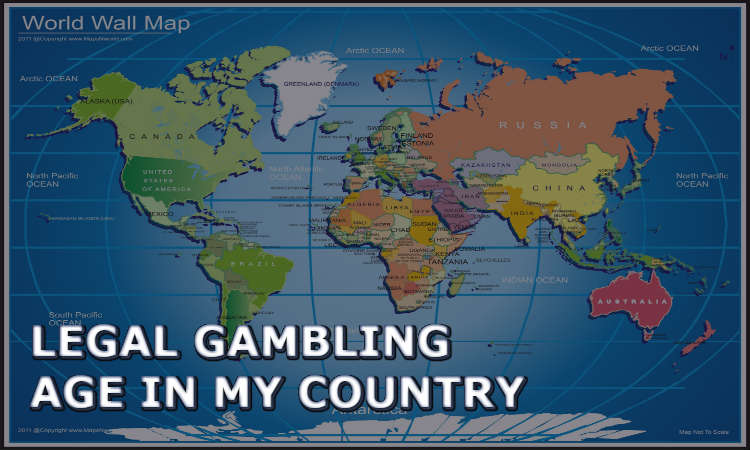Just wondering what the legal age for drinking and gambling is in the bahamas. Report inappropriate content. 1-10 of 15 replies Sorted by « 1 2 » rennymcg. The legal gambling age in Mississippi is 21, so all players who do not meet or surpass this age will not be eligible to join in on the games. What is the legal gambling age in Missouri? - The 21st birthday of anyone living in Missouri is the day that they become legally able to gamble. Nevada legal gambling age would drop to 18 if Assemblyman Jim Wheeler’s new bill is successful, but it faces an uphill battle. The World's Online Gaming Authority Since 1995. Minimum Age to Gamble in United States of America. Below you will find the minimum legal age to gamble in various locations around the U.S., Virgin Islands and Puerto Rico. In the 50 American states, some times you'll see a variance, this usually is due to Indian casinos having different age requirements in their casinos than state regulated. The gambling age is set at 21 for a reason that most likely has to do with how the law interprets an individual’s legal status in society. Until a person is an adult, which is usually 21, they are the responsibility of their parents.
Adolescents What is gambling?
Gambling is taking part in any game or activity in which you risk money or a valuable object in order to win money.
A few examples include:
- Lotteries (Lotto 6/49®, Lotto Super 7®)
- Instant lotteries (7 chanceux®, other scratch cards)
- Bingo
- Betting on billiards or pool
- Card games (poker, blackjack, etc.)
- Private sports betting/sports lotteries (Mise-au-jeu®)
- Casino games (slot machines, roulette, Keno®)
- Video lottery terminals
- Internet gambling
- Dice
When do adolescents begin to play?
In most Western societies, gambling is perceived as a harmless or low-risk social activity for participants of all ages. It is not unusual to see parents offering lottery tickets, especially scratch cards, to their children, even if this activity is meant for adults only. We know from research that many problem gamblers were introduced to gambling activities by family members as early as 10 years of age.
The majority of people gamble and never experience any problems; these individuals play for fun, on an occasional basis, know that they will most likely lose the money being wagered, and only bet money they can afford to lose. After playing, these people go back to their regular activities and other responsibilities. However, for some people, gambling can lead to serious problems.
Why do they play?
Contrary to popular belief, research and clinical work show that money is not the only reason why adolescents gamble. Money is used as a means to pursue gambling activities. Adolescents play for fun, excitement, and to make money. Those who experience gambling problems say that they play to escape and to forget about their problems.
Luck-based and skilled-based activities

Games of luck are games in which the results depend, either partially or totally, on luck. Practice does not increase a person's chances of winning, and a player's knowledge or skill has little or no control over the result. The nature of luck-based games is such that all events are unique and independent. Examples include Bingo, roulette, the lottery and slot machines.
Games of skill are games in which a certain level of knowledge or skill is required; the player can, at least in part, control the result of the game. Practice can make a person a better player. For example, sports are considered games of skill (soccer, golf, billiards, etc.), as well as other games such as chess, some board games and, to a certain extent, some card games.
Private and state-run gambling activities
Michigan Gambling Age
Teenagers engage in both regulated and non-regulated (informal) forms of gambling. Provincial lotteries are offered, organized, and are under the direct supervision of the state or country. While there are regional and national differences, it is generally prohibited to let minors participate in any of these types of activities. Other forms of non-regulated gambling activities include skill-based games, dice, sports betting, and card games amongst perrs.
What forms of gambling do teenagers prefer?
Gambling Age Vegas
What Is The Legal Gambling Age Across The USA?
The most popular form of gambling among high school students was card games, followed by instant lotteries, skill-based activities, sports betting, and bingo. Girls tend to gamble less than boys, but in proportion, boys are more likely to experience gambling problems. Furthermore, boys and girls do not engage in the same kind of gambling activities: boys prefer cards, sports betting and skill-based activities, whereas girls engage more in instant lotteries, cards and bingo.